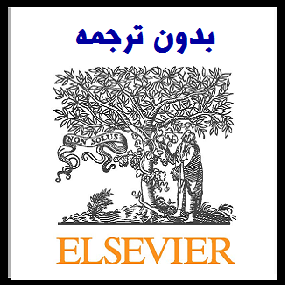دانلود رایگان مقاله صنعت 4.0 و اقتصاد مدور: برتری عملیاتی برای عملکرد زنجیره تامین معکوس پایدار – سال 2020


مشخصات مقاله:
عنوان فارسی مقاله:
صنعت 4.0 و اقتصاد مدور: برتری عملیاتی برای عملکرد زنجیره تامین معکوس پایدار
عنوان انگلیسی مقاله:
Industry 4.0 and circular economy: Operational excellence for sustainable reverse supply chain performance
کلمات کلیدی مقاله:
تعالی عملیات – زنجیره تامین معکوس پایدار – صنعت 4.0 – اقتصاد دایره ای – مدل ReSOLVE – برنامه ریزی مبتنی بر خانواده
مناسب برای رشته های دانشگاهی زیر:
مهندسی صنایع
مناسب برای گرایش های دانشگاهی زیر:
لجستیک و زنجیره تامین
وضعیت مقاله انگلیسی و ترجمه:
مقاله انگلیسی را میتوانید به صورت رایگان با فرمت PDF با کلیک بر روی دکمه آبی، دانلود نمایید. برای ثبت سفارش ترجمه نیز روی دکلمه قرمز رنگ کلیک نمایید. سفارش ترجمه نیازمند زمان بوده و ترجمه این مقاله آماده نمیباشد و پس از اتمام ترجمه، فایل ورد تایپ شده قابل دانلود خواهد بود.
فهرست مطالب:
Abstract
Keywords
1. Introduction
1.1. Technology characteristics of operational excellence
1.1.1. I4.0 technologies
1.1.2. Reverse logistics
1.1.3. The lean approach through cellular manufacturing systems
1.2. Performance dimensions of operational excellence
2. Literature review
2.1. I4.0, operations management, and sustainability
2.2. CE and sustainable operations management
2.3. I4.0, CE, and operations management
2.4. Green product diffusion and remanufacturing
3. System description and mathematical modeling
3.1. Case based transportation network system
3.2. Estimation of emissions
3.3. Reverse logistics framework
3.4. Integration of I4.0 and CE
3.5. Returns system based on Innovation theory (Bass) model
3.5.1. Model assumptions
3.5.2. Environmental and economic performance measures
4. Results and discussions
4.1. Environmental and economic performances
4.2. Practical implications of mathematical model
5. Conclusions
5.1. Implications of research
5.2. Limitations and future research directions
Acknowledgments
Appendix A.
Appendix B.
References
قسمتی از مقاله انگلیسی:
1. Introduction
In recent years, the emerging digital technologies, such as the internet of things (IoT), internet of services (IoS) and cyber-physical systems (CPS), represents novel paradigms that are rapidly gaining grounds in industrial transformation (Sun et al., 2012). Against this backdrop, Germany presented the ideas of ‘Industry 4.0’ in 2011 (Kagermann et al., 2011). The industries are looking for a high level of operational excellence through the developments of I4.0 technologies (Mangla et al., 2019). However, to apprehend the benefits concerning I4.0, there needs to establish a procedure for its practical application, especially while studying its impact on operations management (Holmström and Romme, 2012). Moreover, implementing these technologies demands considerable capital expenditure, restraining it to put into practice (Tortorella and Fettermann, 2018). Considering the above backdrop, operational excellence should be looked at which are economically doable and simultaneously offset the high cost that prevents the adoption of I4.0 principles aiming for sustainable developments. Beside I4.0, other technological-based industrial activities under the premise of operational excellence include reverse logistics, lean operations, six-sigma, inter-organizational information technologies, cellular manufacturing systems, and many other smart manufacturing systems (Mangla et al., 2019). Further, Mangla et al. (2019) identified a few key performance dimensions that need to be addressed in the context of operational excellence to improve sustainable supply chain including flexibility, collaboration, transparency, innovation, and relational capabilities of the supply chain (SC). From these performance dimensions, the question related to research arises is: How does the operational excellence influence these performance dimensions?

